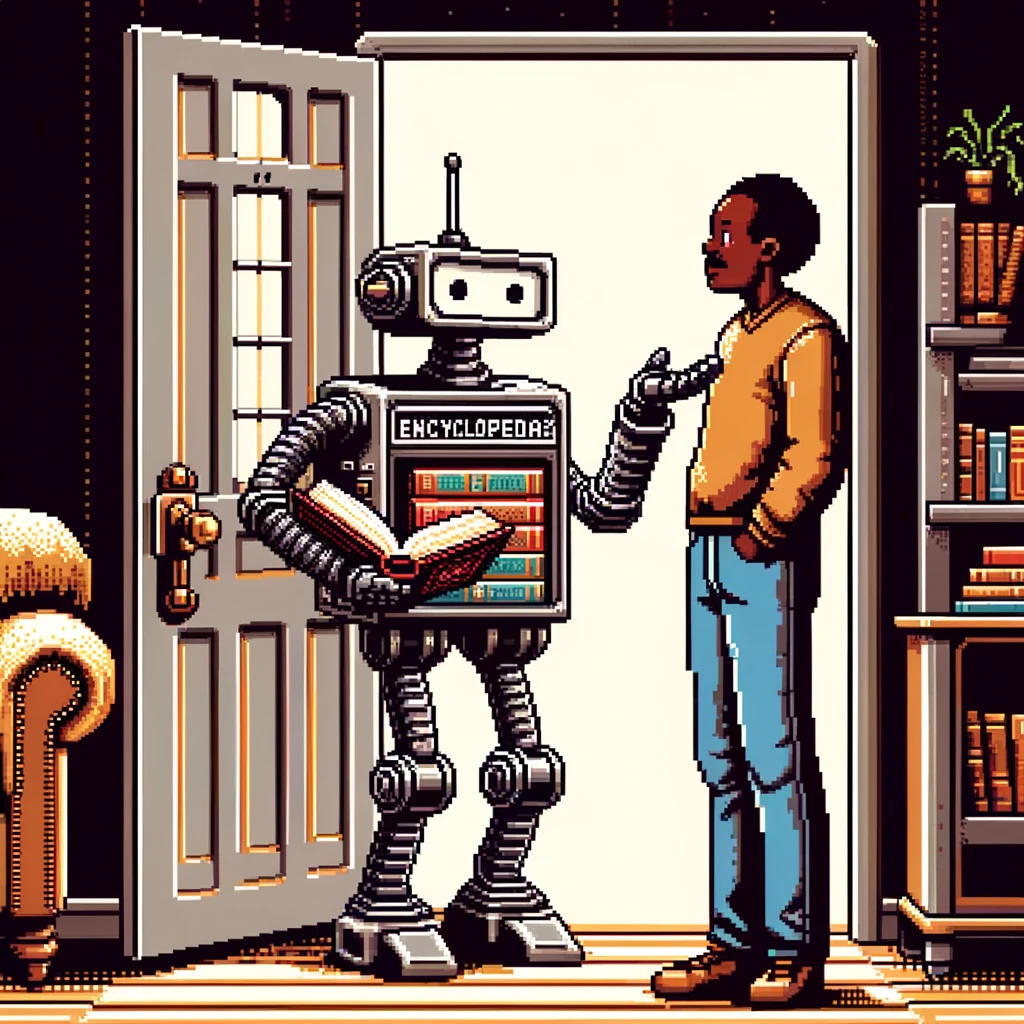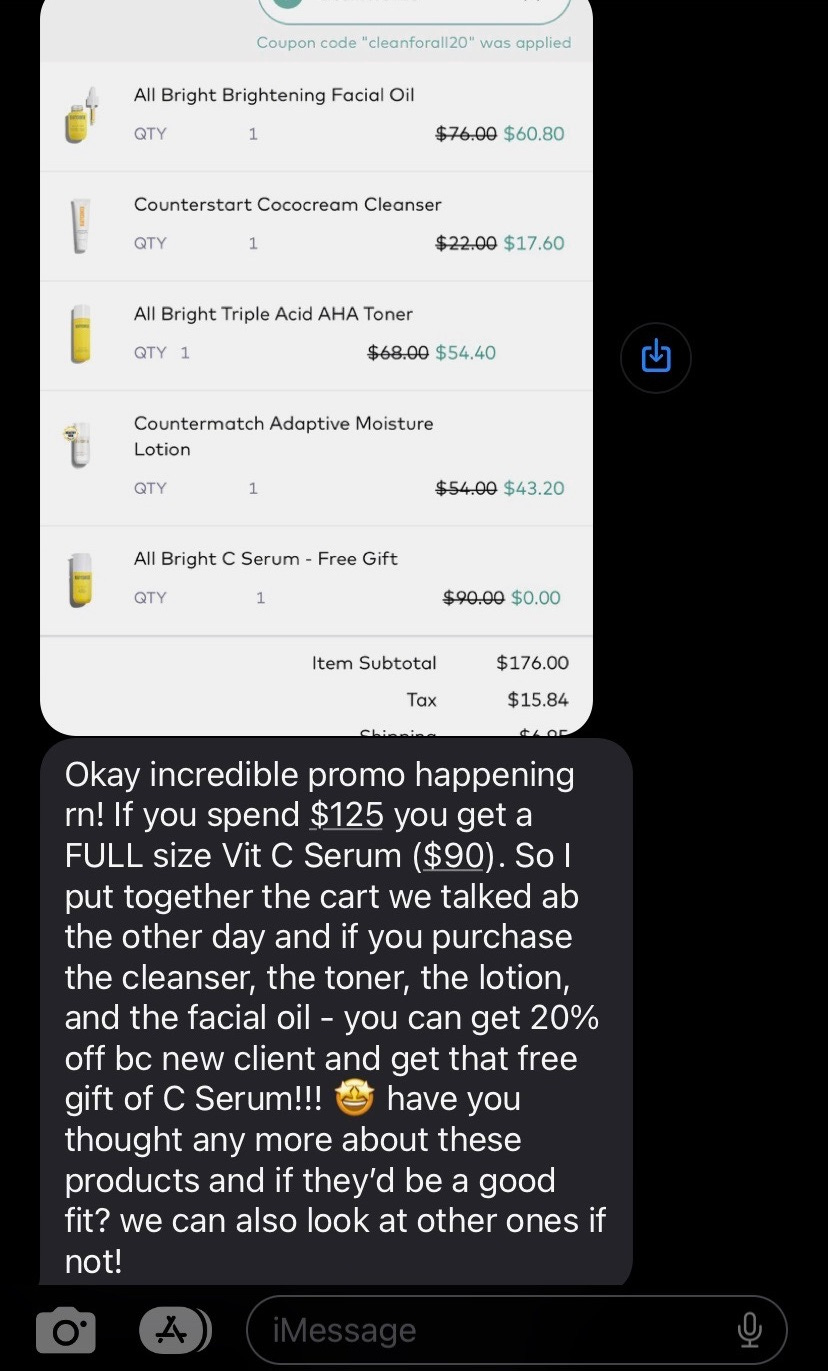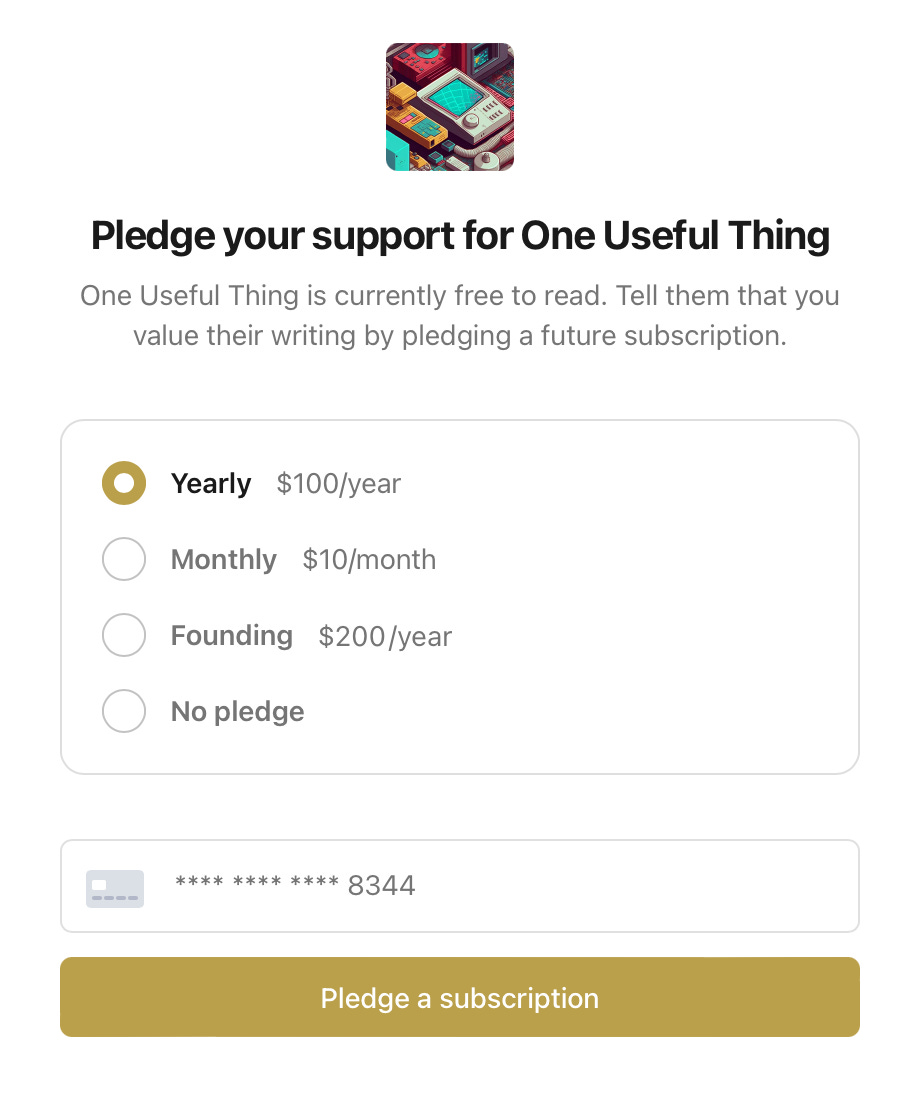Influence in the digital age

In the book Influence, Robert Cialdini provides many examples I can't relate to. Lots of them are door-to-door examples, people getting you to sign petitions and buy vacuums or encyclopedias. There are a few that I have experienced, such as buying a car, but even that has begun to be replaced by the internet. After reading the book, I started exploring ways I have seen these tactics play out online, not just in sales, but how we are broadly influenced digitally.
Definitions
Let’s define the tactics that Cialdini discusses in the books to give us a foundation.
- Reciprocation - Feeling compelled to return the favor when given something, even if that something was uninvited.
- Commitment and Consistency - Staying consistent with a prior stance on a subject, even if the preceding commitment was smaller than this one.
- Social Proof - Determining what is correct based on what others think is right.
- Liking and Similarity - Preferring to say yes to someone you know and like.
- Authority - Deferring to someone with a meaningful title instead of considering information on its merit.
- Scarcity - Desiring something partially because it is rare in number or available for a limited time.
Examples
Below are the nine examples that Amy and I developed together. It is not comprehensive, so I would love to hear any other ideas you may have. Reply to this email or comment below.
Trending (Social Proof) - In our modern media environment, what drives news is what is trending on Twitter, and what is on Twitter is being covered by the news. People are talking about it on Twitter, so they must care about it, and the news is covering it, so it must be important. Ryan Holiday explained in Trust Me, I'm Lying that these cycles don't start themselves. Often, they are kicked off by someone trying to generate publicity. They begin by giving the story to smaller publications and gradually let it work into the broader ecosystem. Instead of covering things that matter, we follow the herd.
Informative Material (Reciprocation) - Content is the primary thing you receive online. Even though the content is free, you may feel you gained based on someone else's work and thus want to repay them. I reference many recommendation sites when researching buying a product. One of those is Wirecutter, which uses affiliate links that give Wirecutter a kickback if someone purchases using one of their links. If the review helped make my decision, I almost always use their affiliate link to provide them with a slight payback for the help.

Tribalism (Social Proof) - Another example in social media is tribalism. A "digital town square" sounds nice until you realize most people in your physical town have similar beliefs, and they are unlikely to line up with someone else across the world. When these diverging opinions are put into an environment where they must compete for attention, it makes complete sense that things would become inflammatory. Then, as people see peers from their tribe being inflammatory, it quickly spreads as acceptable behavior on the internet, even though it would be taboo in the physical world.
Digital MLMs (Liking + Scarcity + Reciprocation) - Now that we are beyond the Tupperware parties and can access our friends 24/7, you can always try to close deals with your friends. One tactic they use is creating a cart for you. They imbued their knowledge of the product and you into this specially curated cart. Conveniently, there is a bonus gift if you order the entire cart that you wouldn't want to miss out on. While you could order directly from the website, using their referral code costs nothing more. So why not?

Censorship (Scarcity) - During Covid, people realized the unintended consequences of limiting information. When you try to bury information, it makes people want the information more and makes them believe the information more. If the intent was to prevent people from believing the content being moderated, it had the opposite effect.
Influencers (Liking + Authority) - They have so much sway in buying power that some have created billion-dollar brands. People follow them because they aspire to that lifestyle or respect their opinions. Influencers also create a personal relationship with their viewers, sharing vulnerable moments. These moments build trust between the follower and the influencer over time.
Pledges (Consistency + Commitment) - If a Substack writer doesn't enable payments, they can take pledges. This pledge has you go ahead and put in your card information and agree that should they ever turn on payments, you will be a paid subscriber. Since you aren't paying anything, it feels like a small commitment, but you are unlikely to back out if they ever turn payments on.

They'll Say Anything (Authority) - Given the internet's easy distribution, anyone can now have an infinite scale. Now, you can find doctors who will back up any point of view. Because they have an MD next to their name, they are trusted without consideration for the validity of what they are saying.
Targeted Anything (Similarity) - People are naturally inclined to trust people who are similar to them. One of the implications is that you are more likely to be influenced by things that share your worldview or interests, even superficially. This is the entire goal of targeted advertising, which will only get better with the use of generative AI.
Appendix
A few thoughts on how the internet changes the effectiveness of these tactics:
- Social Pressure - It is not a "human" selling you the good. There is not a person in your presence actively applying social pressure. Even if there is a real person on the other end of a chat conversation, it is easier to dissociate with the digital medium.
- Comparison Shopping - Price checking has never been easier.
- Options - It is hard to create scarcity on certain products because there are so many online stores. This is even more true for products that have easy replacements. You have to have a strong brand to create scarcity.
- Digital Goods - The lack of friction simultaneously makes it easier to but things than ever, but also seems to de-value purely digital goods.
- Commitment is a Click Away - To get a Taylor Swift ticket, you don't have to camp out, you only have to log in at the right time and buy them. We all learned recently that this isn't a trivial task, but it doesn't create the same buy-in as older methods.



